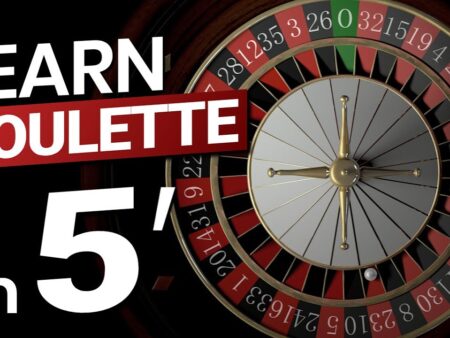
Roulette has a certain mystique that captivates casino goers. Understanding the roulette wheel and its secrets can not only enhance your enjoyment of the game but also potentially improve your chances of success.
Understanding the Roulette Wheel Layout
Here is what you should know:
European vs American Roulette: You’ll find that European roulette wheels have a single zero, while American versions feature both a single zero and a double zero. The presence of only one zero in the European roulette wheel reduces the house edge, increasing your chances of winning.
Roulette Wheel Numbers: It might seem like the numbers on the wheel are placed randomly, but they’re arranged in a calculated fashion to achieve a balance between black and red, high and low, and even and odd numbers.
Wheel Checking: Observe the wheel before playing. A well-balanced, fair wheel is what you want, but imperfections can occur over time. A slight tilt or a bias toward certain numbers could be your key to success if you spot it.
Dealer’s Signature: Pay attention to the dealer, or “croupier.” Some believe that dealers can have a consistent spin pattern or a “signature” that you might be able to predict. Whether this is an urban legend or a hidden truth, it could be a fun experiment during your next game.
Psychological Impacts of Roulette Wheel Design
They include:
The Illusion of Control: The design of the roulette wheel may give you the illusion that you have some control over the outcome. This feeling can make the game more exciting and engaging.
Near-miss Effect: The way the ball dances around the wheel before settling can result in “near-misses”—where it almost lands on your number. These near-misses can motivate you to keep playing, under the optimistic belief that success is just a spin away.
Color and Number Patterns: The color and number patterns on the wheel are designed to be appealing and keep your focus. They may also influence betting choices, as some players have favorite or “lucky” numbers and colors.
The roulette wheel holds secrets that have fascinated players for centuries. While understanding its intricacies might not guarantee a win, it certainly adds depth to the game. Keep these details in mind, and the next time you step up to the wheel, you’ll do so with a new perspective and appreciation. Enjoy the game, may Lady Luck smile upon you, and remember: roulette is not just about the chance it’s also about the experience.
Betting Strategies and the Gambler’s Fallacy
As an enthusiastic roulette player, have you ever wondered what could tilt the odds in your favour? The spinning of the wheel, the clacking of the ball, and where it lands are nothing short of thrilling. But beyond the suspense, there’s an allure to mastering the game’s strategies, elevating your chances of walking away a winner. Let’s explore the strategic nuances that could elevate your roulette experience.
Common Betting Systems in Roulette
They include:
Martingale System
The Martingale is a progressive betting system. Here, you double your bet after every loss. The aim is that when you eventually win, you recuperate all previous losses and gain a profit equal to the original bet. It’s perfectly designed for bets that have close to a 50% chance of winning. However, remember that tables have betting limits and long losing streaks can occur.
Fibonacci System
This system is based on the Fibonacci sequence, where each number is the sum of the two preceding ones. You progress through the sequence with each loss and step back two places with a win. It aims for a profit over a series of bets rather than a single win.
D’Alembert System
This method is less aggressive than the Martingale. You increase your bets by one unit after a loss and decrease it by one unit after a win. The D’Alembert system is designed to work over a longer period and is less risky.
James Bond Strategy
A flat betting system where the same amount is bet in a particular unit split amongst high, low, and a specific number or sequence. This quirky approach doesn’t rely on progressive betting, making it a less volatile option.
The Illusion of Control and the Gambler’s Fallacy
The Illusion of Control in Gambling
When rolling the ball, might you feel a sense of influence over its stoppage? This phenomenon is known as the illusion of control. Being human, it’s natural to crave control, but in roulette, each spin is an independent event. Learning to distinguish between skill and chance keeps you grounded and improves your gaming experience.
Understanding the Gambler’s Fallacy
The gambler’s fallacy is the mistaken belief that past events affect future ones in random processes. If black has come up five times in a row, you might think red is “due,” but in reality, each spin has the same odds. Embracing this fact helps you play more rationally, avoiding baseless hunches and focusing on what you can control – your betting strategy and bankroll management.
Final Words
In the quest for gains in the game of roulette, knowledge is power. Whether it’s the mystique of Fibonacci, the allure of James Bond, or the classic double-up Martingale charm, each strategy presents its journey on the roulette tableau. Remember, while systems may enhance your play, nothing guarantees success. With patience, understanding, and a dash of luck, may the wheel spin in your favour! Keep an eye out for Lady Luck, but don’t forget that rationality is your most trusted companion at the roulette table.
Paul Barnes cuts through the casino hype with honest reviews and strategy breakdowns. He’s played on every major platform, always looking for the hidden gems (and the ones to avoid).
More about Paul Barnes
Age: 31
Experience: Rising star in the online casino scene, 7 years of in-depth reviews
Background: Studied journalism before finding his passion in gaming analysis
Hobbies: Retro video game collector, aspiring board game designer
Residence: Brighton
Marital Status: In a committed relationship


